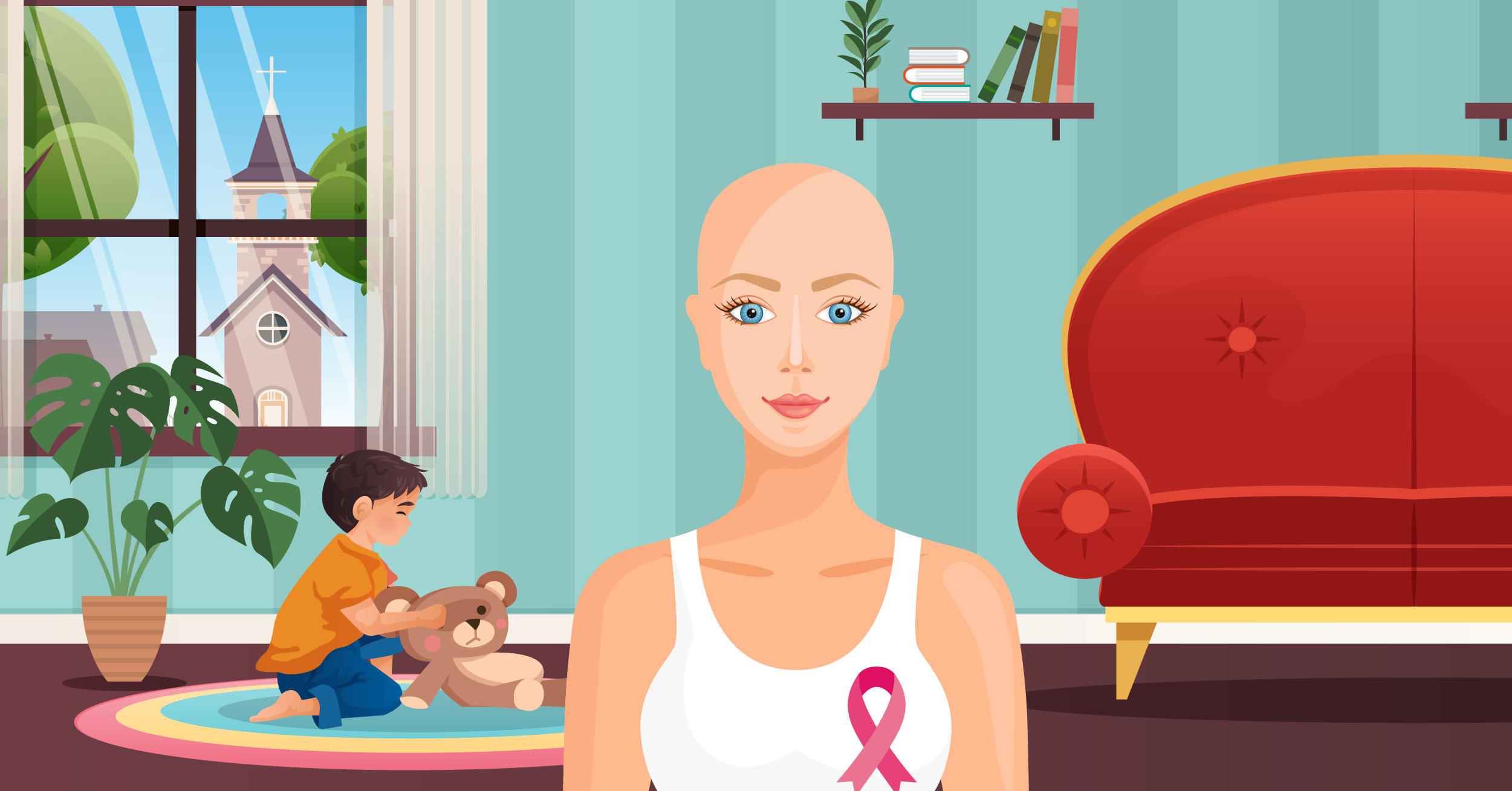5 Things Men Can Do for Women Who Have Breast Cancer

In relationships, women often find purpose in being caregivers. So, when something ugly like breast cancer comes along, it’s typical for women to resist other people caring for them, especially the men in their lives. Just the idea of a son, husband, father or brother caring for them can upset many women. “I’m the one that takes care of them. They aren’t supposed to take care of me.”
It's easy to pretend this wonderful, caring woman with breast cancer does not need the loving care you are offering. Avoiding difficult conversations or interactions may seem like it is lowering stress but believe me, avoidance will escalate stress, not decrease it.
So here are five things men can do for women in their lives who have breast cancer.
Be there.
“You don’t need to go.” Before the diagnosis, your loved one probably repeated this statement many times in regard to a trip to the grocery store or your in-law’s house. Obviously, trips to chemotherapy units, oncology offices or MRI centers are much different. You need to be there with her. Tell her you need to go on these trips for you, not her. Why is this important? Being there removes several levels of isolation that words cannot touch. Remember: the hurt and isolation cancer brings can injure even the strongest relationship/marriage. She may have even arranged for a friend, daughter, sister, mom- to go with them. Trust me. You still need to go.
Serve them.
“I’m fine.” When your caring woman with breast cancer says “I’m fine”, you are left with two difficult things to figure out: What do they need? What can I do to help?
Here’s some suggestions.
Physically- As the caregiver, ask her doctors what you need to be doing. There may be specifics like post-surgical needs but also ask about diet, rest and exercise too. Learn to anticipate bad days after chemo, sensitive skin after radiation and even small things like her inability to reach up high due to her port scar.
Responsibilities- As procedures and treatments progress, fatigue and other discomforts will limit her ability to fulfill her responsibilities. These include both household chores and services she gives outside of the home. It’s tempting as a caregiver to absorb all of her responsibilities. That is not your role. Your role is to take care of her. When people ask, “What can I do to help?”, ask them to help with a responsibility she is no longer able to do. You may hate asking for help but taking care of yourself is also important. Remember: A sick caregiver is bad for everyone.
Emotionally You may discover that the things you did before to make her smile, do not work anymore. Places you used to go to lift her spirits become difficult to visit. Some of the people that you both relied on, don’t reach out to you anymore. The procedures and treatments leave you wary of even the simplest touch like helping her up the stairs. Suggestion?
- See even the smallest smile as a victory.
- When you both are able, visit happy places.
- Don’t wait. Reach out first to friends and family.
- No matter what, don’t stop touching.
Spiritually- There will be times your caring woman cannot go to church, attend Bible study, read her Bible, or host a small group. Yet there will be other times when she is able to do these things but finds it easier to remain isolated. The things which build her faith will bring her strength. Encourage her to attend when she can. ALSO, if you have never prayed aloud for her, give it a try. This is an incredibly precious gift.
Make plans.
“Let’s wait until we know how I am doing.” A statement like this from a cancer patient can make sense. After all, cancer treatment is about waiting. Waiting for the next scan or test or procedure. The tendency in all cancer journeys is to put the future on hold. The truth is, that if you woke up today, God has plans for you. Whether short term or long term, plans bring focus and hope that cancer cannot steal from you. Give it a try. Plan a trip for ice cream or a weekend away.
Be a mirror.
“I’m done looking in the mirror.” Breast cancer looks horrible in the mirror. Major changes like mastectomies, port scars and drainage tubes and smaller changes like the loss of her eye brows eyebrows make mirrors easy things to avoid. For your loved one, she might see herself as a damaged woman. A woman’s breast cancer struggle with self-image is less about vanity and more about feeling unwanted. Your job is to make her feel wanted. Whether you are a son, husband, father or brother, be a mirror and reflect back to her that she is precious. Here’s some ways to show you still rely on them:
- “It’s good to just be here with you.”
- “Can you help me figure this out?”
- “You make me smile.”
- “What do you think about…?”
- “I’m so glad I have you.”
One husband was a mirror like this:
“My wife’s cancer treatment took a toll on her body image. Somehow in the mirror she saw “damaged goods.” Yet, when I looked at her, I saw the same beautiful woman that I fell in love with many years ago. When I kiss her lips, they are still the same ones I kissed at our wedding altar.” Dan Held, Breast Cancer Caregiver (Read More)
Excerpt from Embracing Hope in Your Cancer Journey: Daily Reflections from Inside the Cancer Journey
Repeat
This is not a list of things you do one time and then check off as accomplished. This is a list of tools to use repeatedly throughout your loved one’s breast cancer treatment and beyond. Two truths to remember:
- Cancer bad days are not always something others recognize.
- Cancer doesn’t end on the last day of treatment.
God can use cancer to strengthen people, faiths, relationships and families. Don’t be a cancer spectator. Find ways to step into your loved one’s struggle and show you care.


